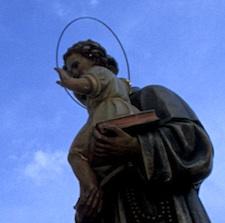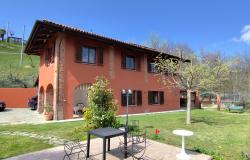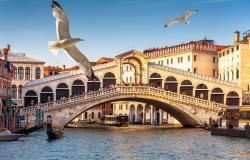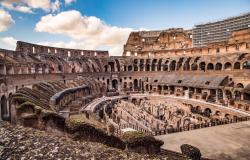Whilst the ban on crucifixes in Italian schools imposed by the European Court of Human Rights – a ruling which Italy is appealing - has received a lot of media coverage worldwide, a proposal by the country’s Deputy Minister for Economic Development, Adolfo Urso, to introduce an “Islamic hour” into the public and private school curriculum has largely gone unnoticed.
Under a Concordat of the 1929 Lateran Pacts, one hour’s instruction per week in the Catholic religion is regarded as an entitlement in Italian schools, though students are allowed to opt out of it and alternatives such as Civic Studies are offered.
With foreign children making up 4.2% of Italy’s school population and 37% of these being Muslim, the Minister is proposing an hour of instruction in Islam as a possible alternative to the Catholic hour. Mr Urso says that he is suggesting the measure in the hope of steering young Muslims away from fundamentalist, extremist sects.
The idea, as you may imagine, has provoked strong reaction on all sides.
It has been welcomed by the centre-left opposition, by Chamber of Deputies President Gianfranco Fini and by the Foreign Minister and Deputy Prime Minister Franco Frattini, who feels that the measure would promote social cohesion and calls for a Concordat with Islam. Mr Frattini has said that it is important to establish an “Italian Islam.”
Meanwhile, the anti-immigration Northern League sees the proposal as a “provocation”, Interior Minister Roberto Maroni has stated that he will not back it and Daniele Carpezzone has suggested that Italy has other priorities with regard to Islam, such as ensuring that Italian, not Arabic, is spoken in mosques. Andrea Ronchi, the European Policy Minister, feels that the idea should not be dismissed.
Despite having said in 2006 that it would not oppose an Islamic hour for Muslims, the Vatican now states that the teaching of religions other then Catholicism in Italian schools could “generate relativism” and the Italian Bishop’s Conference [CEI] maintains that Catholicism is taught because it is an essential part of Italy’s history and culture. The Head of the Catholic Church in Italy, Cardinal Angelo Bagnasco, similarly states that,:
“..knowledge of Catholic facts is indispensable to understanding our culture.”
The majority of Italy’s state school teachers are also against the proposal, as school hours and teacher numbers have already been cut under reforms introduced by Education Minister Mariastella Gelmini.
Do you think that the introduction of an Islamic hour in Italian schools will promote social integration?









